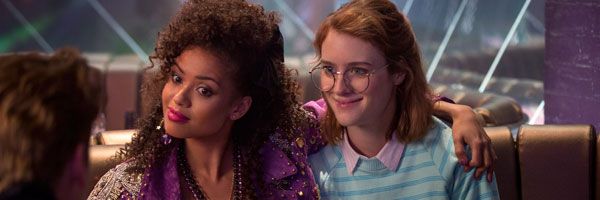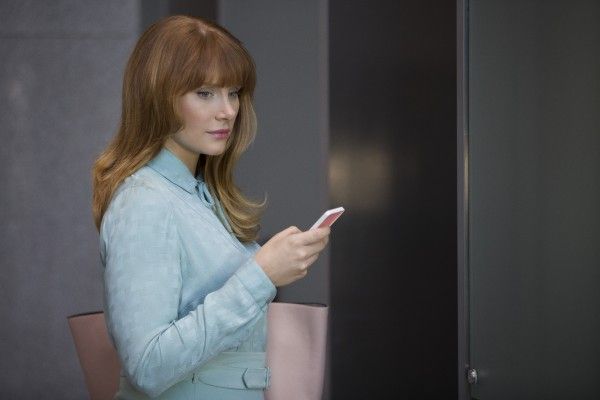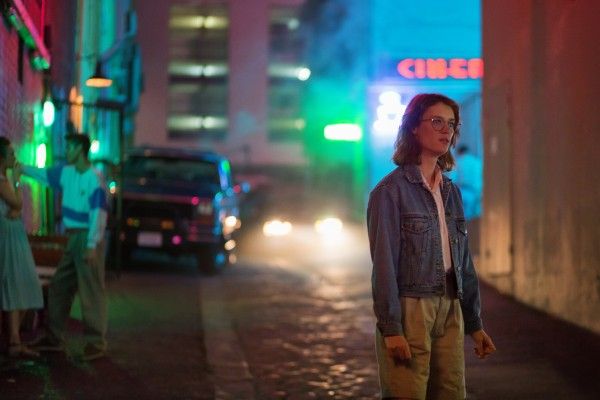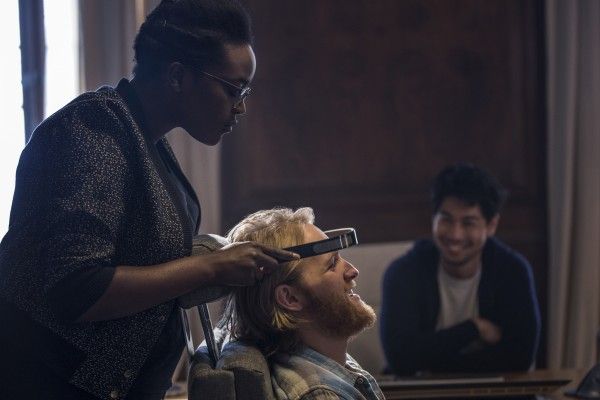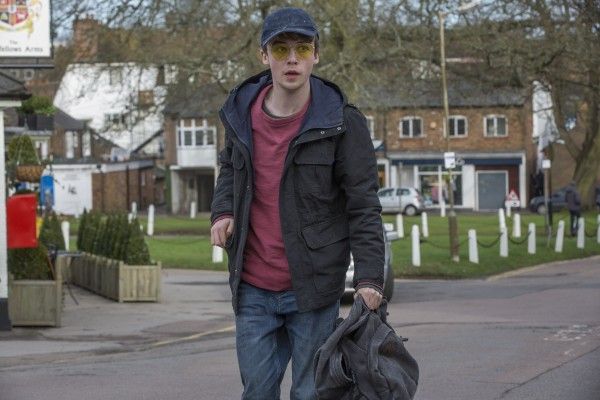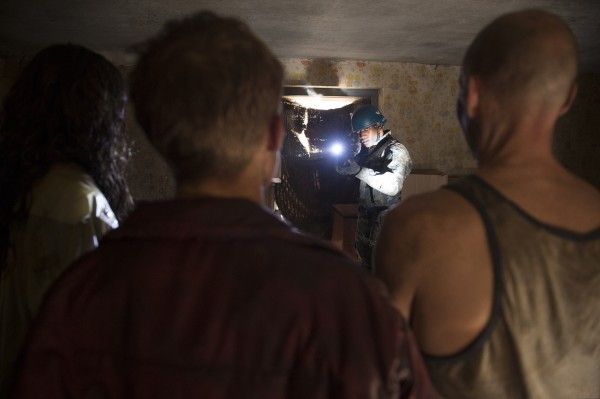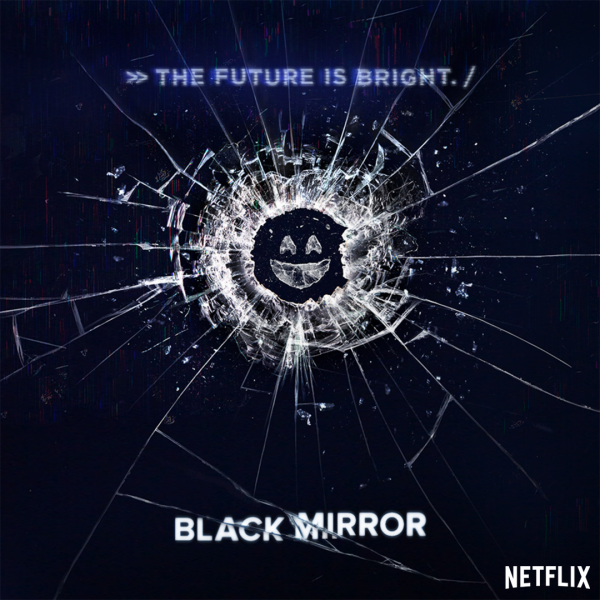The acclaimed anthology series Black Mirror, that taps into our collective unease about the modern world, has dropped its six-episode third season at Netflix. The stand-alone episodes, which include a stellar cast of actors and line-up of directors, explore themes of technology, anxiety and human relationships, in a way that leads to a sometimes unsettling and sometimes shocking but always unforgettable conclusion.
During a roundtable interview to discuss the new episodes, creator/writer/executive producer Charlie Brooker and executive producer Annabel Jones talked about how they’ve structured this season, the side effects of technology in our lives, why they’re not tackling American politics in these episodes, the visceral reaction viewers are likely to have, why binging might not be the best way to watch these episodes, and the freedom that each director has, once they’re paired with a script.
Question: How have you structured this season?
ANNABEL JONES: Now that we’re doing six episodes in the season, there’s a lot more variety across the season and we venture into different genres. We have a police procedural, we have a love story, we have a thriller, and we have a domestic, grounded story.
CHARLIE BROOKER: We’ve got a military story, we’ve got a horror romp from Dan Trachtenberg, and we’ve got a social satire from Joe Wright.
JONES: There’s a variety of genre, but a consistency of tone. We always try to make the episodes entertaining, whether that’s thrilling you, teasing you or scaring you, but there’s always a dark humor to them, as well. There’s a playfulness. They make comments on the world, but do it in an entertaining and often sarcastic way.
BROOKER: It’s interesting, in the U.K., I’m known for doing comedy things, which often doesn’t translate to the U.S. I’m often howling with laughter when I’m coming up with ideas for this show, which we then play straight. I find it amusing when I’ve read critiques of this show that have said, “Who is this angry guy that’s furious with the internet?” But, I’m quite a dweeb. I love games and technology, and all of that kind of stuff.
So much of this show is steeped in how technology can ruin our lives. Will you be exploring the dangers that it imposes, if you come to rely too much on it?
BROOKER: I think we’re more about the side effects. We don’t tend to be about evil corporations or evil gizmos. I’m a fan of technology, generally. I’m not like Statler and Waldorf, shaking a fist at the App Store. Well, sometimes I am. Our stories tend to be primarily human stories about a dilemma, in which the technology often facilitates a character’s downfall.
JONES: It’s much more about the human drama, the human story. The technology is not the evil, it’s the facilitator. It’s often what we’re doing. It’s all led by the individual. Do we over share? Do we not have any sense of privacy anymore? We’re the perpetrator.
BROOKER: When you look at things like social media, that’s an immensely powerful tool that I’m all in favor of. I think it’s amazing. It’s a powerful tool, and it’s one that we’re, as a species, still grappling with learning to use. It’s like we’ve grown an extra tail and we inadvertently lash out and knock over all of the furniture. As an animal, we’re getting used to dealing with the consequences of these miraculous tools that we’ve invented. That’s our area. There’s probably a couple of these that are fairly explicitly about social media, but when I say explicitly, the technology is always backgrounded to the story. It’s a difficult story to talk about because we try to keep so many things a surprise. But, we do have one where social media is at the forefront of an unfolding mystery.
You were able to tackle politics and the media, in the first two seasons. In Season 3, will you be tackling American politics?
BROOKER: We don’t really do American politics in any of these. Thank god, we didn’t because it’s gotten so bizarre that how could we have foreseen that coming. What we do tap into is an undercurrent of rage that seems to be boiling, around the world, at the moment. One of our stories fairly explicitly deals with that. But, we couldn’t have foreseen how odd politics was going to get. We try to stay one step ahead of the weirdness of the world, which is increasingly tricky.
JONES: The world is making it difficult.
BROOKER: Yeah, bloody world!
JONES: It’s not on our side, at the moment.
Is the episode set in the ‘80s your first period piece?
BROOKER: It is. I thought, “What would people not expect from Black Mirror?,” so that’s how that episode came about.
Will any of these episodes create physical reactions, in the way some of the previous episodes have?
BROOKER: I think you’ll certainly have a powerful reaction to several of them. We certainly have. There’s one of them that has moments I can barely watch, in a good way. There’s definitely discomfort. There are funny moments in there, as well.
JONES: Some of them are very visceral and very harrowing. I think you’ll be pleased.
BROOKER: You’ll be happy in an upset way.
JONES: Through your tears.
BROOKER: It’s interesting, I don’t know that we’re much of a binge-watching show. It’s a bit like being hit by a car. How many times can you get hit by a car, in one day? I don’t know to what extent people watch one episode after the other with us because we give you a beginning, a middle and an end. We’re not teasing you out. The way we approach the show is to think of it like a little film festival, and we’re giving you tickets to six films.
JONES: The episodes often resonate much longer after you’re watched them. You go away and they’re still rattling around in your head and you’re still coming to terms with them. Some of them are quite challenging, and some of them raise interesting questions. It’s a full meal. You need to go away and digest.
So, you would recommend not binging then?
JONES: I don’t recommend not binging. People have that option on Netflix, which is great. If you want to watch them in one go and can stomach them, good.
BROOKER: Or you can have a little lie down in between, go for a walk, have a cry, have a biscuit, or whatever you want to do. One of them is feature length, as well.
JONES: And one or two of the them are romps. They’re really funny and playful, but with a dark bite to them. You could absolutely watch those and enjoy them, in the moment, and then watch another one. There’s a lot more variety, in this season.
BROOKER: Because we did six, where before we did seasons of three, which is frankly lazy of us, it was a heck of a challenge because you have no economy of scale, you have a different cast each time, and you have different directors. The director sets the look and the tone of the story. We felt it was important to have a little more variance, so it’s not just a bleak show. You will get the absolute depths of despair, but you will get highs, as well.
What’s the process for pairing a director with a script, and does the director have a lot of freedom in shaping that script to match their creative vision?
JONES: It’s absolutely tailored to the director. Once we have the script, we will then approach the director that we think will enjoy it themselves and will be able to take it from the script onto the screen. We’ve been really lucky this season, in that we have Joe Wright, Dan Trachtenberg and Jakob Verbruggen, who’s done House of Cards and The Fall. You know quite quickly whether you got the right director because of how they respond to the material. Unlike a lot of other TV shows, they have the opportunity to come in and set up their own world, so when you’re talking to them about their ideas, you know very quickly, if they’ve really understood the material and what they can bring.
BROOKER: There are no rules. That’s the great thing. There’s so much freedom. For a director coming into most shows, the look has been set and the rules of the world are set and the cast is set. We have no rules, which means everything is a negotiation and a discussion. The scripts often change quite dramatically when a director comes on board because they’ll have a particular vision that they want to realize and that we’ll get on board with. It means that it’s quite an idiosyncratic show. The other odd thing is keeping as much variance as possible, but still making everything feel like it’s Black Mirror. It’s kind of like sequencing an album.
JONES: There’s a tone, I think.
BROOKER: There’s a flavor. It’s like a box of chocolates, where each one is different, but it was always dark chocolate around the outside. That seems like a reasonable explanation.
Black Mirror is available at Netflix.

